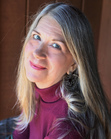Re-reading & reverie
Writing a book is a hard job. One is always tempted to limit himself to dreaming it.
Above all, the great books remain psychologically alive. You are never finished reading them.
–Gaston Bachelard
~
In The Poetics of Reverie, Bachelard writes of reveries on words, then moves to reveries on reveries themselves, which brings him to books. Books (philosophy, fiction, and poetry books in particular) are, for Bachelard, a kind of dream made real. Books are places to dawdle and to dream as one reads, places in which the reader can interact with imagination: the reader’s imagination, not the author’s imagination. The author’s work, if it is great, tempts readers into reverie. For this reason, Bachelard says he likes to read his favorite books many times. Each reading produces new reverie.
The chapter in which he makes his case for literature as reverie is an odd one, less of a philosophical argument and more a blend of literature, psychology–particularly along Jungian themes, and sociology, with side trips into discussions of duality (more on the masculine and feminine), the physiology of sleep/dreaming, alchemy (more Jung!), Strindberg, Goethe, Nietzsche, Henri Bosco, and Balzac.
I prefer the chapters on either side of this one (on words and on childhood). But this section made me consider the books I have re-read in my lifetime, and the idea of dreaming with literature. And the lovely idea of books as “psychologically alive.” What a terrific observation!
When I was a child, I preferred reading the next book to re-reading a favorite, although there were a few books I read over, more than once in some cases. As I read my way through high school and college, my inclination toward novelty continued. Why spend time reading books I had already read? The dreaming-with the book aspect Bachelard describes did happen for me, but the reflection lasted only as long as my engagement with each text. I was not a “close reader,” and as a result it was easy to get wrapped up in the dream-world when I read fiction. Still, the dream was the book’s dream, not my own. Closer reading is what leads to reverie, I think: re-reading and reflecting.
It was poetry that taught me to read more closely, to re-read, to dream with the text, to find true reverie in the process of reading. Poetry has always felt psychologically alive to me, and I agree that one is never finished reading a great poem. Or a great book.
I find I must also concur with Bachelard that “one of the functions of reverie is to liberate us from the burdens of life.” Nothing like a daydream, or a great piece of literature or art, to free us–however temporarily–from the things that weigh us down.











